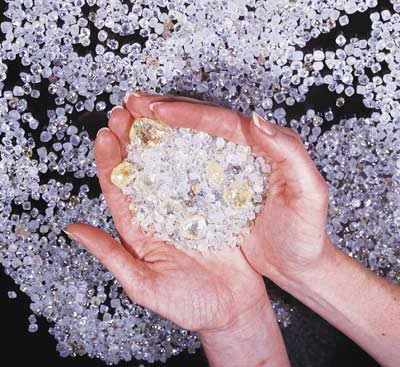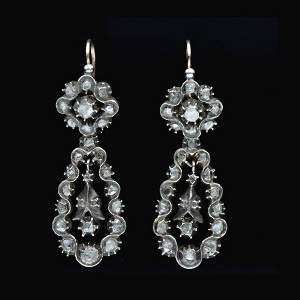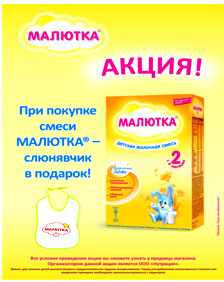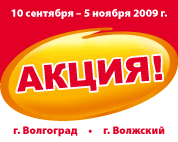Category: "Uncategorized"
Бриллиант

They say diamonds are a girl's best friend. The Russian word for this girl's multifaceted best friend is бриллиант or in the plural бриллианты. Doesn't the word just sound so shiny and, well, brilliant?
| Мой кавалер подарил мне серьги с бриллиантaми! | My boyfriend gave me diamond earrings! |

| Она купила бриллиантовое кольцо в пять каратов. | She bought a five-carat diamond ring. |
As with many Russian words, there is a way to refer to small diamonds — бриллиантик or бриллиантики.
For example:
| У неё в ушах по бриллиантику. | She wears a small diamond stud in each ear. |
Over the course of history there have been many beautiful and revered diamonds. My favorite is The Shah. It is originally from India and weighs 88.7 carats. The first three owners of the rock engraved their signatures on it. Eventually, as a show of diplomacy, Persia gifted it to Tsar Nicholas I.

| Алмаз Шах один из самых драгоценных бриллиантов в мире. | The Shah is one of the most valuable diamonds in the world. |
Город
The Russian word for city is город. It has one of the many nominative plurals that end in a stressed -а, which means all the rest of the plural forms will also be end-stressed:
| Sg | Pl | |
| Nom | город | города |
| Acc | ||
| Gen | города | городов |
| Pre | городе | городах |
| Dat | городу | городам |
| Ins | городом | городами |
The writer Толстой had an axe to grind against cities. I believe he thought that when people lived in cities, relationships decayed and moral issues became compromised. When they lived outside of the city, relationships had the potential to be healthy. Let's continue that thought with our example sentences:
| Когда я жила в Москве, я слишком много пила. Когда я жила в деревне, я не пила вообще. | When I lived in Moscow, I drank too much. When I lived in the village, I didn't drink at all. |
| Когда мы жили в Питере, мой муж постоянно загуливал. Теперь мы живём в сплошной глуши, и он стал очень внимательным. | When we lived in St. Petersburg, my husband constantly fooled around. Nowadays we live in the sticks, and he has become very attentive. |
| Во Владивостоке у меня каждый день была астма. Теперь я живу в Хельсинки и мне легко дышится. | In Vladivostok I had asthma every day. Now I live in Helsinki, and I can breathe freely. |
| Когда мы жили в Финиксе, мы ели отвратительно жирную еду. Теперь мы живём в городе Строберри и едим только овощи из своего огорода. | When we lived in Phoenix, we ate disgustingly fatty food. Now we live in Strawberry, and we only eat vegetables from our own garden. |
Первый
The Russian word for first is первый. From the ending it's obvious that the word is an adjective. It is also a number, in a certain sense, and since it tells what order things occur in, we call it an ordinal number. Here are its endings:
| Masc | Neut | Fem | Pl | |
| Nom | первый | первое | первая | первые |
| Acc | * | первую | * | |
| Gen | первого | первой | первых | |
| Pre | первом | |||
| Dat | первому | первым | ||
| Ins | первым | первыми | ||
Russians use ordinal numbers much more than Americans do. For instance, instead of saying “Here comes bus number one,” Russians say “Here comes the first bus.” Instead of saying “I live in apartment number one,” Russians say “I live in the first apartment.” For instance:
| Идёт первый автобус. | Here comes bus number one. |
| Я живу в первой квартире. | I live in apartment number one. |
I don't mean to say that Russian always use ordinal numbers. It's also possible to say the same thing using the word номер, just less common:
| Идёт автобус номер один. | Here comes bus number one. |
| Я живу в квартире номер один. | I live in apartment number one. |
Of course, other uses of первый are also possible:
| Я получил первое письмо от Володи в январе шестьдесят третьего года. Он был в гулаге около Магадана. | I received the first letter from Vladimir in January of sixty-three. He was in a gulag near Magadan. |
| Я стал радиоастрономом, потому что хотел обнаружить первое межзвёздное сообщение от инопланетян. | I became a radio-astronomer because I wanted to detect the first interstellar communication from extraterrestrials. |
Бесплатно

Who doesn't love a good deal? And the best deal is when you get something for free or "бесплатно." The adverb бесплатно means "free of charge"; the adjectival version is бесплатный. Here is how the word breaks down: the prefix без- means "without" (and here takes the form бес-) and the stem -плат- means "pay." I love it when words make simple sense like that! But remember, just because we can translate the word as "free" doesn't mean it can be used in any other context. There is a different word for "free" as in "independent" or" available." I doubt many companies want to think of 4th of July as "Free of Charge Day!"
Here are a few examples on how to use "бесплатно:"
| В салоне «Хилтон» предлагается бесплатный массаж в этот понедельник! | The Hilton spa is advertising free massages this Monday! |
| Первый приз — бесплатная поездка в Ирландию. | First prize is a free trip to Ireland. |
| В кафе мне добавили сливки бесплатно. | They added cream for me free of charge at the café. |
When I go to New York, one of my favorite places to eat is this Chinese restaurant where they have my favorite kind of deal on wine: "Вы платите за ужин, и вино бесплатно!" "You pay for dinner, and the wine is free!"
Акция
Over time words change their meanings, and their meanings can change in several ways:
- A particular meaning of a word can be used less and less often to the point that many people don't know the old meaning. For instance, “charity” in English used to mean “love of one’s fellow man,” a meaning of the word that nowadays is not well known outside of religious circles.
- A general meaning of a word can be used more often in a more specific sense. “Charity” is again a good example, which nowadays mostly means “giving money to the needy” or “an institution that helps the needy.”
- A particular meaning can be generalized.
- A brand new meaning can be applied to a word with only the vaguest of connections to its previous meanings. The use of “mouse” in the sense of a device used to reposition the cursor on a computer screen.
And when a word is being used in a new sense, that sense is not usually reflected in dictionaries for some time. One such word that has a very common meaning these days that is not shown in most dictionaries is the word акция which can now mean "sale, special" in the sense of a temporarily reduced price. I was very surprised to learn this meaning this summer, because previously the most common meaning of акция was “a share of stock.”
Here are some examples of that usage from this summer. In this first ad if you buy малютка, then you get a free bib, so probably the best translation of акция is “special”:

In this next one if you buy Ryaba brand mayonaisse, you can win 10,000 rubles, so again “special” is the best translation:

This next one is a banner hung in front of a Пятерочка grocery store. Notice they've added супер to the word, so here we have a supersale:

<< 1 ... 17 18 19 ...20 ...21 22 23 ...24 ...25 26 27 ... 41 >>